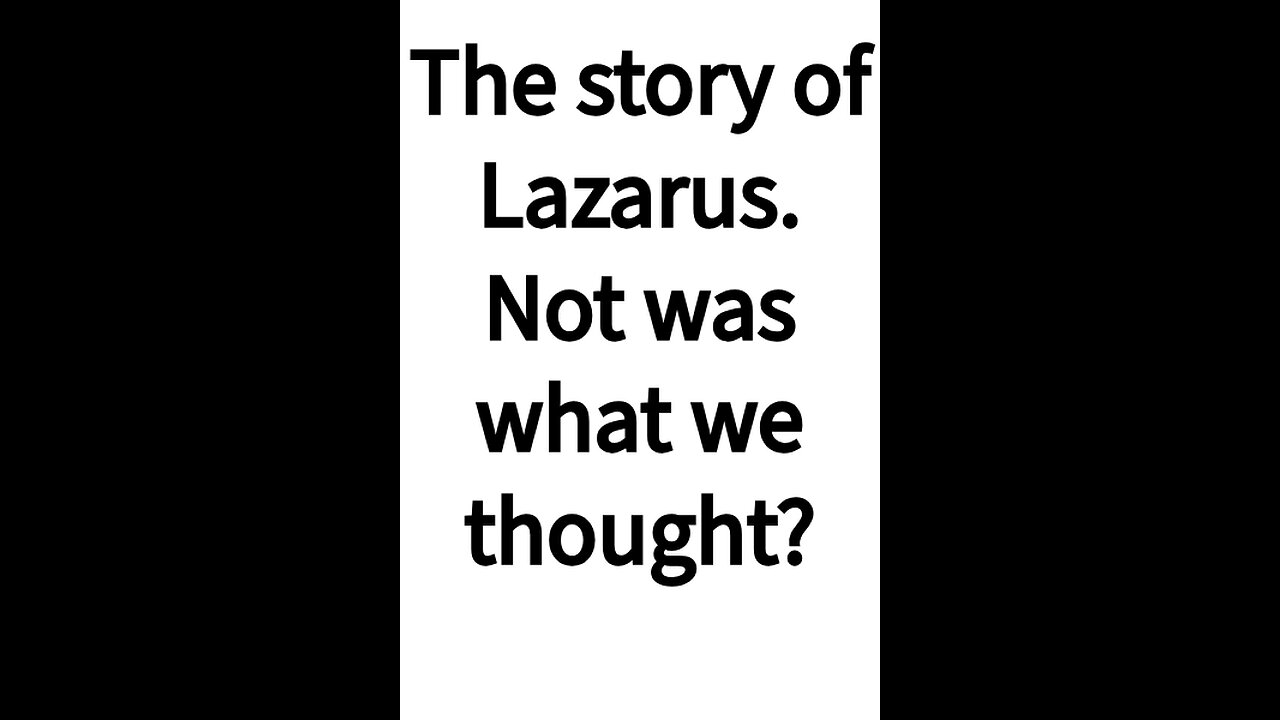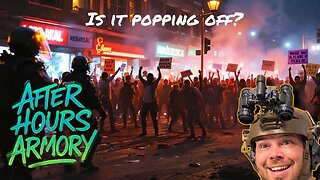Premium Only Content

Edward Fudge, High Priest, Karl Barth!
Edward Fudge, a theologian known for his work on conditional immortality (the belief that the wicked will ultimately cease to exist rather than suffer eternally), would likely interpret this parable in the following way:
Not about the Afterlife: The parable primarily addresses the stark contrast between the rich and the poor in this life, emphasizing the need for compassion and social justice. It is not a literal depiction of the afterlife, as the imagery is drawn from Jewish folklore and apocalyptic literature.
Symbolism: The rich man and Lazarus represent opposing extremes of wealth and poverty. The chasm between them symbolizes the unbridgeable gap that can exist between social classes in this life. The rich man's pleas for water and warnings for his brothers highlight the consequences of neglecting the poor and failing to heed God's word.
Focus on This Life: The parable urges its listeners to respond to God's call for justice and compassion in the present. It warns against the dangers of prioritizing material wealth and neglecting the needs of others. While it hints at the consequences of such choices, its primary focus is on how we live our lives in this world.
Moses and the Prophets: The reference to Moses and the prophets emphasizes the importance of scripture in guiding our actions and informing our understanding of God's will. It suggests that the rich man and his brothers had access to the truth but chose to ignore it, leading to their downfall.
Universal Message: The parable transcends specific religious beliefs and speaks to a universal human experience. It challenges us to examine our priorities, confront social inequalities, and live lives of compassion and justice.
Barth, a renowned 20th-century theologian, believed in the possibility of universal salvation – the idea that God's grace might ultimately extend to all, even those who seem lost.
From this viewpoint, the Parable of Lazarus could be interpreted not as a definitive statement on eternal damnation, but rather as a stark warning about the consequences of neglecting God's call for justice and compassion. The rich man's torment could be seen as a temporary state, a purgatorial experience designed to awaken him to the truth and lead him towards repentance.
Barth's perspective doesn't negate the urgency of the parable's message about social justice and the need to care for the poor. It simply suggests that God's love and mercy might ultimately triumph over sin and death, offering hope for all of creation.
In this reading, the chasm between Lazarus and the rich man becomes a symbol of separation from God, a separation that can be overcome through repentance and faith. The rich man's pleas for Lazarus to warn his brothers become a desperate attempt to prevent others from suffering the same fate, highlighting the importance of sharing the Gospel and living lives that reflect God's love.
Ultimately, this interpretation emphasizes God's sovereignty and grace. It suggests that even in the face of seemingly insurmountable obstacles, God's love has the power to transform and redeem. It offers a message of hope that resonates with those who long for a world where justice, compassion, and love prevail.
-
 40:24
40:24
The Connect: With Johnny Mitchell
1 day ago $1.51 earnedInside The WORST Drug-Infested Slums Of Medellin, Colombia
8.36K4 -
 1:43:56
1:43:56
Tundra Tactical
5 hours ago $3.23 earned🛑LIVE NOW!! FBI Gets Caught LYING About Good Guys With Guns For 10 YEARS!!!!
22.9K1 -

BlackDiamondGunsandGear
2 days agoAFTER HOURS ARMORY / Antifa / Lies/ Prison time
11.8K1 -

DLDAfterDark
5 hours ago $1.35 earnedThe After Hours Armory! Tonight is The Chat's Chat! God, Guns, and Gear!
15.9K1 -
 3:32:18
3:32:18
Mally_Mouse
8 hours ago🌶️ 🥵Spicy BITE Saturday!! 🥵🌶️- Let's Play: Phasmophobia
33.9K4 -
 1:13:19
1:13:19
iCkEdMeL
4 hours ago $7.34 earnedChaos Explodes in Chicago & Portland | Feds Clash with Protesters!
26.7K7 -
 21:54
21:54
Exploring With Nug
1 day ago $7.53 earnedScuba Diving Missing Person Search Leads to Discovery of Classic Cars!
49.5K8 -
 LIVE
LIVE
Phyxicx
8 hours agoStar Wars: Movie Battles II Community Event hosted by ReaperAF95 - 10/4/2025
197 watching -
 1:19:51
1:19:51
World2Briggs
7 hours ago $2.14 earnedThe US This Week
29.2K3 -
 2:31:13
2:31:13
Joker Effect
4 hours ago"MAKE STREAMING GREAT AGAIN" - Brands Step Up Finally. Birth of Rumble Community. Taking Leadership
16.6K1
